In the 70’s, underground comix depicted the ugly side of truth most people refused to acknowledge in their daily lives while finding beauty in that same wasteland of a world. Cartoonists like Robert Crumb produced influential books like Zap Comix which brought a bit of prominence to the punk subculture of comics. A subculture that still thrives today through the ink of storytellers like Glenn Head. His new graphic novel memoir published by Fantagraphics, Chicago, tells a story of a young man starving for his art in a city full of drugs, hookers, and Muhammad Ali. We talked to Glenn about the challenges of taking his storytelling into long form and a look back on his longevity in the art world.
Comics Beat: Glenn you’ve done autobiographical shorts before, what was it about the Chicago time of your life that made you decide this has to be a full graphic novel?
Glenn Head: I just really knew that this was very rich material. My own thought processes, because I was young and not very grounded to reality, were such that I saw things and experienced them in a way that was unmediated by common sense, or even necessarily inspiration. The things that happened, my going out on the road, dropping out of art school, no one on earth knowing where I was…. I didn’t do this because I’d been reading Kerouac. I did it because I was basically just crazy enough to not know how dangerous it could be. And a character who doesn’t know he’s about to step into it is always good for a story, because he has to improvise. I’m not a sadist or anything either. I would never wish some of the experiences I had in Chicago on anyone—but I absolutely loved trying to capture them happening to me. And what they felt like!
I also felt that this was something that was worth making a long piece out of. I wanted to see what it was like to delve into character—my own especially, but also trying to capture my interactions with my father … to show how we got along or didn’t. And I really loved the challenge of trying to capture these different worlds in comics form. New Jersey, Cleveland, Chicago, New Jersey again, and finally Brooklyn, from 1977 to 2010. It’s very exciting to me to try and delineate a sense of time and place in comics. The scope of it, you know?
CB: I can see that. So much of what you capture in certain panels is what artists like Scott McCloud talk about panels being a frozen moment in time and scaled for readers.
As someone that grew up in a household where success was measured by how many hours someone allowed you to work for them, I related to Glen’s yearnings and the way you have to tune out people who simply believe they want what’s best for you. Chicago tows the line between inspirational and preachy so eloquently. As you’ve been drawing since your early teen years; when and how did you come to the realization that the 9-5 life was never going to work for you?
GH: I think I first realized the regular working life wasn’t for me was when I had a factory job when I was 21. I was a serial-art school dropout by then…. I’d been thrown out of the Cleveland Institute when I was 19 and the School of Visual Arts the year after. You had to be pretty crazy to get chucked out of S.V.A. back then! I was.
So working this factory job I had, I realized it sucked much worse making widgets then putting up with pretentious crap from art school professors. So I went back yet again to S.V.A. And I think I knew I had a lot to learn.
Soon I realized that there were ways to avoid full time job life. The main thing amongst the budding cartoonists I knew was to find very cheap rent and a girlfriend who might pay more than half of it, while taking illustration jobs to cover basic expenses. In the eighties and nineties, there was a ton of illustration work out there if you were willing to look. Every cartoonist I knew did some of that to buy time for cartooning.
Most everyone did hackwork back then for Screw magazine too … though I don’t mean to disparage anything. Plenty of people did some decent work for Screw. For me it was like: “Shit I gotta pay this phone bill that’s overdue! I’ll do a three-pager!” Screw was great. They’d pay on delivery of work, not publication.
It was a different New York back then, obviously. But whatever scam you had to run, you did it! Nothing must get in the way of your comics!
Sorta kidding but it’s sorta true. If you wanna draw comics you better wannit pretty bad!
CB: As much as death and sex figure into the over arching theme of the book. The circle of family seems to seep into the book on both ends. Did being a father make you look back on this period of your life through a different lens? Were the stories in the book told to your daughter before you’d even considered creating Chicago?
GH: I’m not sure if being a father made me look back on things differently. I guess it must have. The obvious thing, I sure wouldn’t want my daughter having the Chicago experience! Not just the starvation aspects…. I wouldn’t advise anybody to go through any mental instability—not that you have a choice in the matter! But yeah you have a bit of a re-connection with your own lost innocence when you become a father … and the world of Underground Comix that I knew growing up … you flip through an issue of Zap Comix when you’re like fifteen, it indicates just this nightmare world of depravity. Spend enough time with those comix, that becomes your own warped vision—mine, I should say—of the world. When you have a child you see that innocence again. I did. It blew me away.
And yeah I’m pretty much of an open book when it comes to telling stories to my daughter…. I don’t think I’ve told her every sordid detail of Chicago, but probably a lot of it. Meeting Muhammad Ali … the starving, homeless part … as a parent you don’t want to rub your kid’s face in the dirt of your past. My daughter’s fourteen now, and it took me six years to draw Chicago, so she was hearing about it all along. I only recently showed her the actual printed version of it. I felt I had to because she’s in it! But I didn’t show her the rest of it … it’s too personal, and, you know—she’s only fourteen. It wouldn’t be appropriate.
Comics Beat: Yeah as great as Chicago is I don’t see Disney knocking down your door for the rights. Which is probably a huge selling point for those deeply vested in the underground comix scene.
As much as the story takes place in other cities; Chicago itself is the focus and visually has a more distinct mood, almost sentient, from the extra cracks in bricks to the physically impossible shadows it casts on people. What visually about Chicago inspires you in drawing it here and what was your favorite part of the city to draw in the book?
Glenn Head: I think drawing Chicago itself was probably affected by the fact that my entire time there was just so precarious. So to draw it was kind of re-living trauma, I suppose.
But as I say, the challenge of trying to capture that was very exciting to me! Can you draw what it feels like to go hungry? Especially for a middle-class kid who’s never experienced anything like it? Or what it feels like to be eyeballed by sexual predators? To try and nail that feeling of helplessness and terror. That’s a little masochistic perhaps, but I enjoyed it. Drawing myself that way. There’s a lot to work with.
One thing I’ve always deeply loved in comics is urban squalor. It may have to do with growing up in the New Jersey suburbs where things were pretty clean. That was the ideal. As a consequence I think I saw the city as something more powerful. Scary even, but kind of unlimited in what might happen. It couldn’t be categorized or put in a box. It was everything at once.
As a kid I really fell in love with some of the street scenes I saw in comix by Crumb. The way he drew buildings, cars, people. Such grittiness. I love the feeling of a good street drawing where it’s just very tactile. You can almost smell it.
So I was really working toward that as much as possible. I loved drawing both the north and south sides of Chicago. The contrast of rich and poor. But you know, a lot of it is just the harshness of it. It’s a harsh town, the cold is unbelievable—I don’t know how people can take it!
I flew out to Chicago for a few days with a camera before starting the project. Went to all the places I could remember. Man, the south side of Chicago is even scarier than I remember it! Drawing the south side was probably my favorite. I loved the area for its street signs, the buildings … it just seemed so hard-bitten. So tough. And as a white middle-class kid from the “right” side of the tracks it’s thrilling to draw places where I don’t really feel I’m from or belong in.
CB: How many times have you told the Muhammad Ali story to friends and family at bars or gatherings? Do you think he’s ever mentioned that story to anyone? I mean it does seem like a moment that would even stand out to a man who at the time pretty much owned the world.
GH: Man I’ve told that Muhammad Ali story so many times to so many people … in fact I originally did a three-page strip titled The Muhammad Ali Story! for a book of mine called Avenue D Comics many years back…. It takes up six pages in Chicago. In a way, the Muhammad Ali part is kind of the centerpiece of the Chicago chapter. It seemed so surreal even as it was happening.
Do I think Ali would ever have mentioned it to anyone? Possibly … if only because he looked a bit nonplussed when I was quick to mouth-off back to him … and because I was a street person, who knew where it might end? The point is when it all happened it was street theatre of the best kind … which Ali lived for, and I was as out there in those moments as he was! I was just crazy enough, and in some ways smart enough to know that the Ali ferocity was a playful mask, a showbiz thing. Not everybody else got that, even these tough black kids on the street that day.
But who knows if he’d remember it longer than that afternoon. This was just another day at the circus for Muhammad Ali, really … 1977. And you’re right—he owned the world back then.
That line of his “You ain’t as dumb as you look”? Years back, ’65 I think, he used that on John Lennon who’s comeback was “No, but you are!” Wish I’d said that!
CB: Getting back to the book. Orwell was obviously right when he said autobiographical works should reveal something disgraceful about the subject; yet here the reader can’t help but empathize with the characters in the book (Sarah and even to an extent Glen). Revealing such personal secrets can’t be easy. What fears did you have about revealing these stories about your past? Did you ever find out what happened to Aaron?
GH: You’re right, it isn’t easy. You can’t help wondering if you’ll end up regretting doing a memoir like this, even if on the other hand you really want to tell it. A lot of my fears were sort of generalized about it…. Even drawing myself hungry, homeless and panhandling … being eyed up by sexual predators, that’s not easy to depict. Are you sure you want to share that? But really in working on a book like this, the story itself is very raw stuff and the only thing to do is tell it as straight as possible.
And then, you know, you worry a little about what your family is gonna think. There’s this scene where I’m laying in bed fantasizing about them going over a cliff in the Winnebago, all dying. What would they think of that, as well as some other scenes in that chapter? Wishing death on your family—that’s pretty extreme, no? Well actually it isn’t! Par for the course in a lot of families, I bet … what isn’t is to draw it out! To depict it.
I mean it’s exciting to draw all this out in comics form, to try and draw from my own history. And with a drawing style like mine which is kind of intense, a little weird … to try and capture some kind of objective reality. An emotional truth.
No, I never saw Aaron again. I’ve always thought back on Aaron … this guy who simply offered to help. Saw me sprawled out on a subway platform as I was on the cover of the book.
I was also trying to depict something about the slant on things that white people have. My character, he’s basically saved by Aaron … he’s grateful for it too, but in the aftermath his Dad asks him—“Can you contact this Aaron? Reach out to him?” And I’m like “Naw, nope, I dunno….” I just think it’s the nature of white people to take everything for granted…. Once my character has made it through this particular episode the whole thing is largely forgotten. The same way the black cleaning woman is unnoticed in that scene with me and my father at home. This isn’t what I think of as racism, exactly … it’s about people not always seeing beyond their own little worlds and into other people’s
Comics Beat: Are there any other periods of your life you feel would best be told in this long form graphic novel story?
Glenn Head: Yes, what really interests me about long-form comics is delving into life experiences and then the aftermath of them. I’m definitely at a point in my life where I see my own personal history as much more fascinating, bizarre and crazy then anything I could make up…. And I’ve always been curious as to how my past experiences affect me.
I think the way I process memories is a little strange. I’ve experienced various traumas in my life and as a result I think my mind can go into a state of what’s called hyper-arousal. So there are a great many events in my life that I recall with intense clarity—they don’t even have to be embarrassing or painful! It’s kind of an extreme way to experience life. I’m sure it affects the way I draw, too. There’s kind of a feeling of intense, hyper-focus to it. It’s really just the way I see things, I think.
Currently I’m writing a childhood memoir entitled Chartwell Manor. This was a boarding school I went to for seventh and eighth grade in Mendham, New Jersey. It was styled around this kind of British model, corporal punishment, etcetera. The headmaster there eventually got sent to prison. The book is all about my time there and—to a much greater extent—how all of it affected me long term. In fact it’s quite a harrowing story. It’s going really well—it’s in the breakdown stage—I’ve written about 135 pages or so. It may go to 200.
I have one other one planned that I won’t go into the particulars of. It’s almost too personal to talk about … until I’ve figured out a bit more of it.
But I’m looking at memoir right now kind of like a Chinese box—where you open up the box and get a smaller one; you examine that. And then you open the next one and that’s another memoir.
So with Chicago and these two other memoirs I’ll have my trilogy. The third of these will be the most difficult. Both to face and to construct it as a narrative.
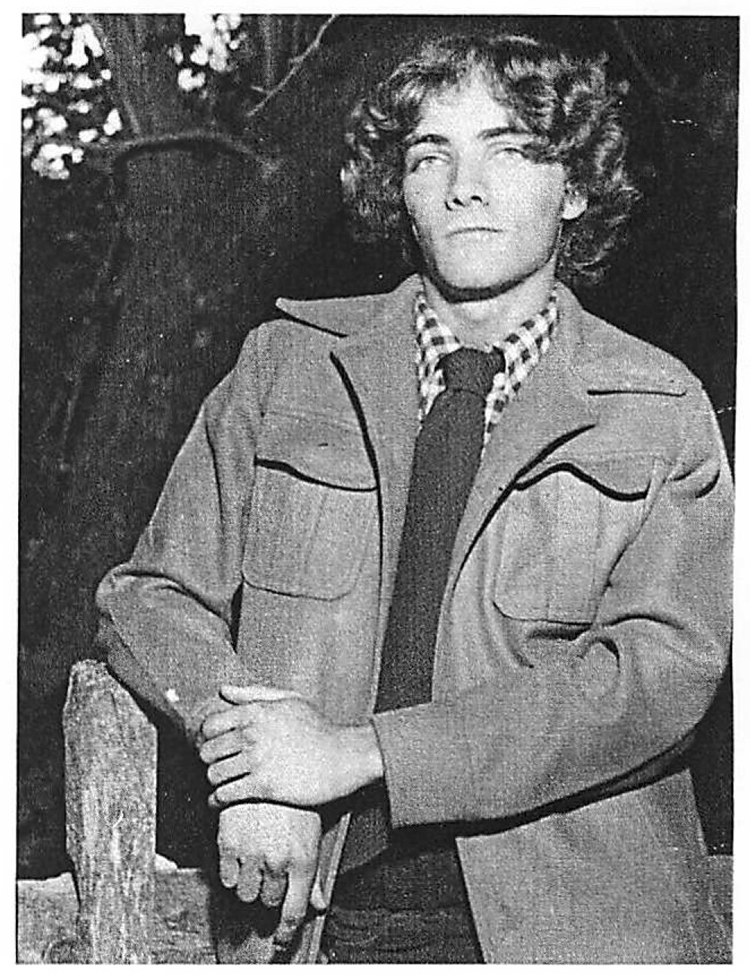
Comics Beat: With what you faced in Chicago, I both can’t imagine and can’t wait to read what parts of your life you’ll open up next.
Chicago was in a way Glenn getting in touch with Glen and looking at how those experiences shaped you as a person today, but if you could talk directly to yourself in those days what would you say?
Glenn Head: “Be calm! This is all gonna blow over!” I think about this question all the time, because in fact, when you’re a lot younger you do things in spite of what others might tell you … and then you pay a pretty high price for it. I’d say I did.
It’s like if you’ve got a kid you basically want them to hold off on being sexual for as long as possible. Sex can be the ultimate actions-lead-to-consequences thing, this is why adults are—hopefully—thoughtful about who and how often they fuck. Kids have no controls on anything, so the actions can go anywhere.
And go anywhere was pretty much what I did. A lot of the people I knew growing up were that way. But I guess if there was one thing I would say it’s probably this: Don’t worry—it’ll work out. It might not seem like it but it will.
And also: Don’t bother going to Cleveland! Art school in the Midwest? Are you kidding? Study art in New York or San Francisco! Go where the action is—where the sparks are flying! Cleveland? Forget it!
And being me (at nineteen) I woulda just said “Buzz off, Pops, I’m outta here!” Just done what I felt like.
CB: Thank you Glenn for your time. This book is such a great melding of life experiences and art that it will probably end up being taught in colleges at some point. Any advice for artist who might have more people in their lives who say “why” instead of “why not”?
GH: Stick to it! If you really wanna find a way to tell your story you will. Also, find others who get what you’re up to. Nobody ever does anything alone, ever, or at least very rarely. Art is always a dialogue, so you have to find like-minded souls who believe in you enough that there’s a support system. This is a great time for comics because there’s such enthusiasm about it. Great work is being done.
While Glenn finishes opening the next part of his story to readers; you should pick up Chicago direct from Fantagraphics website or demand if from your local comic book store. While you’re on your googles and thumb devices search “underground comix” but be prepared for a rabbit hole you may never want to find your way out of.


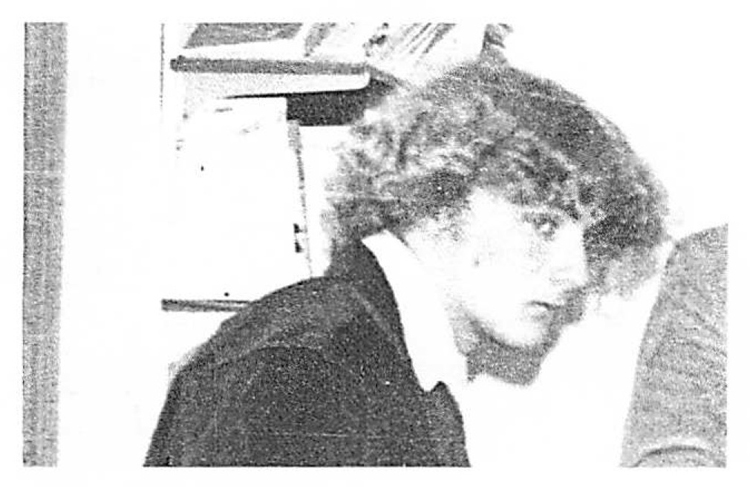
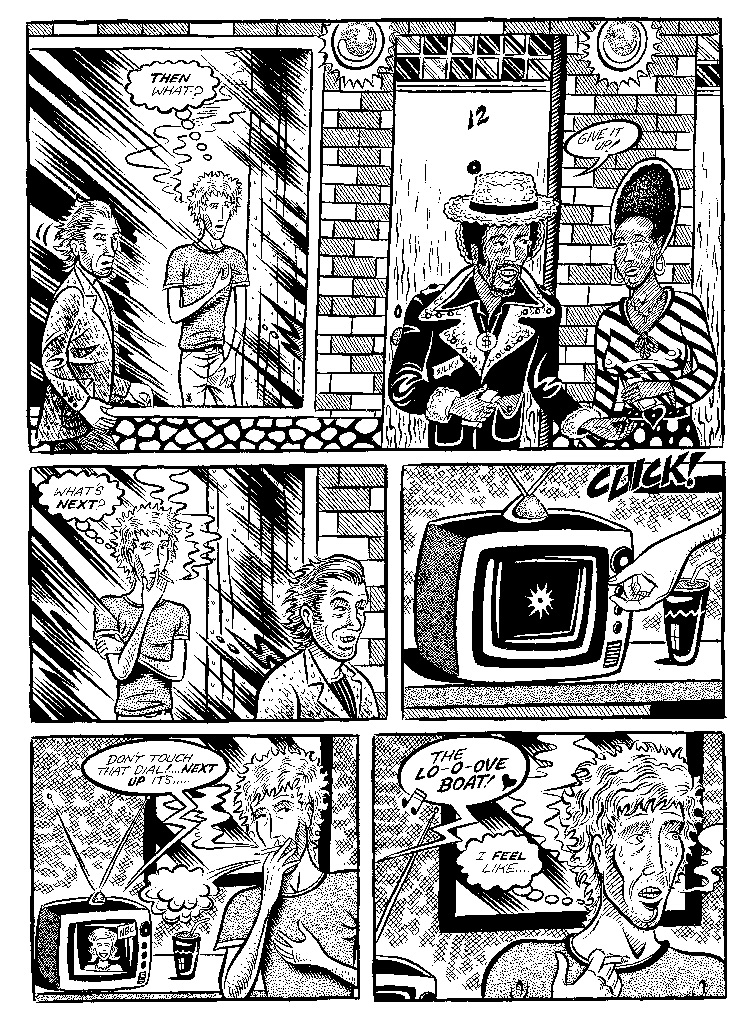
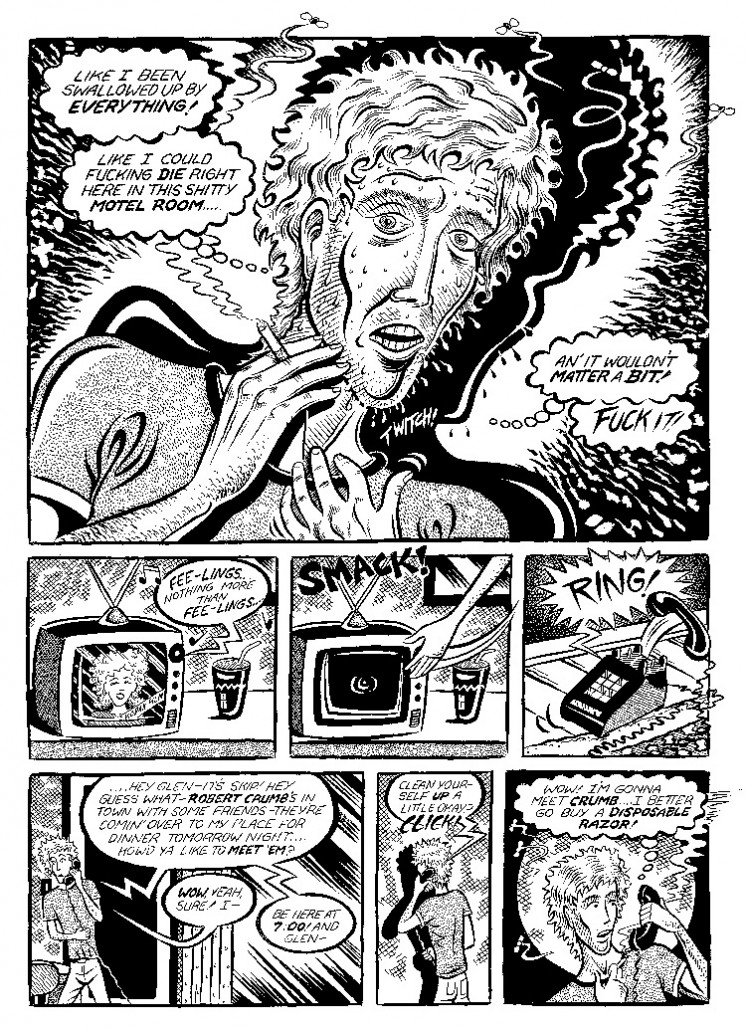
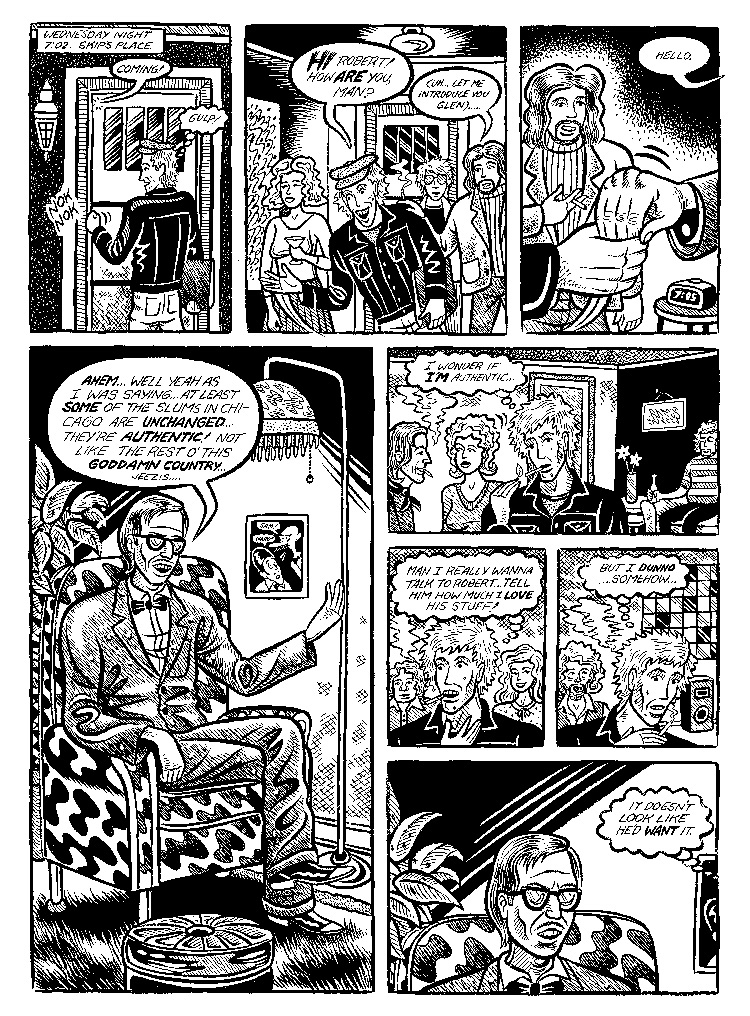
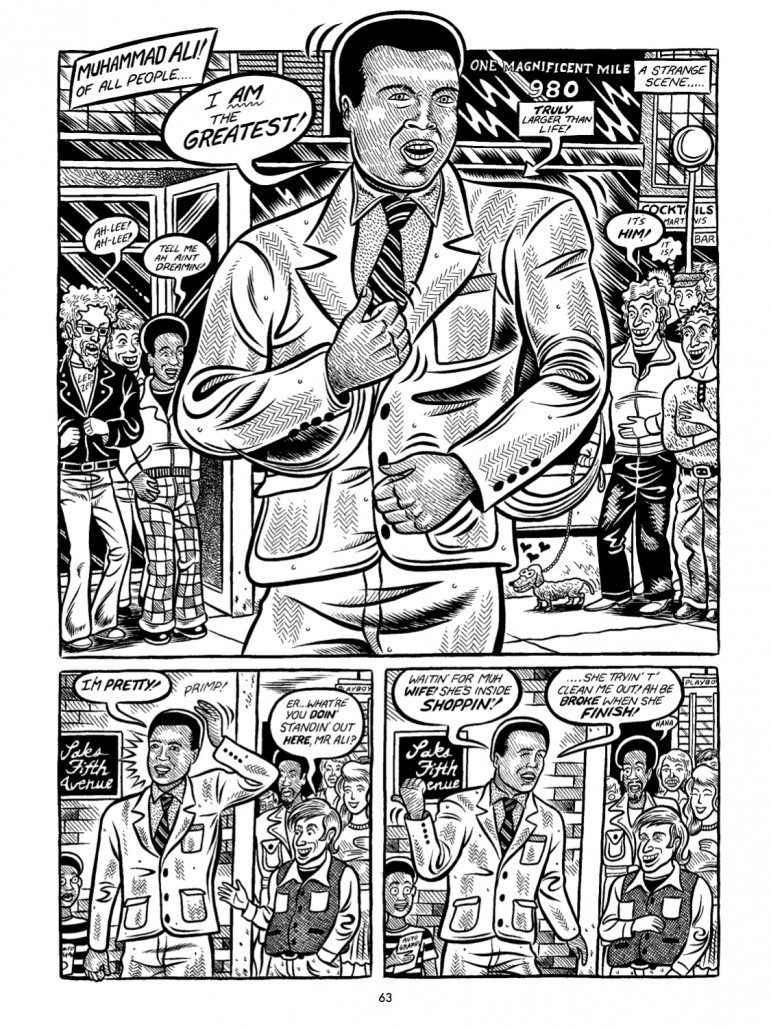


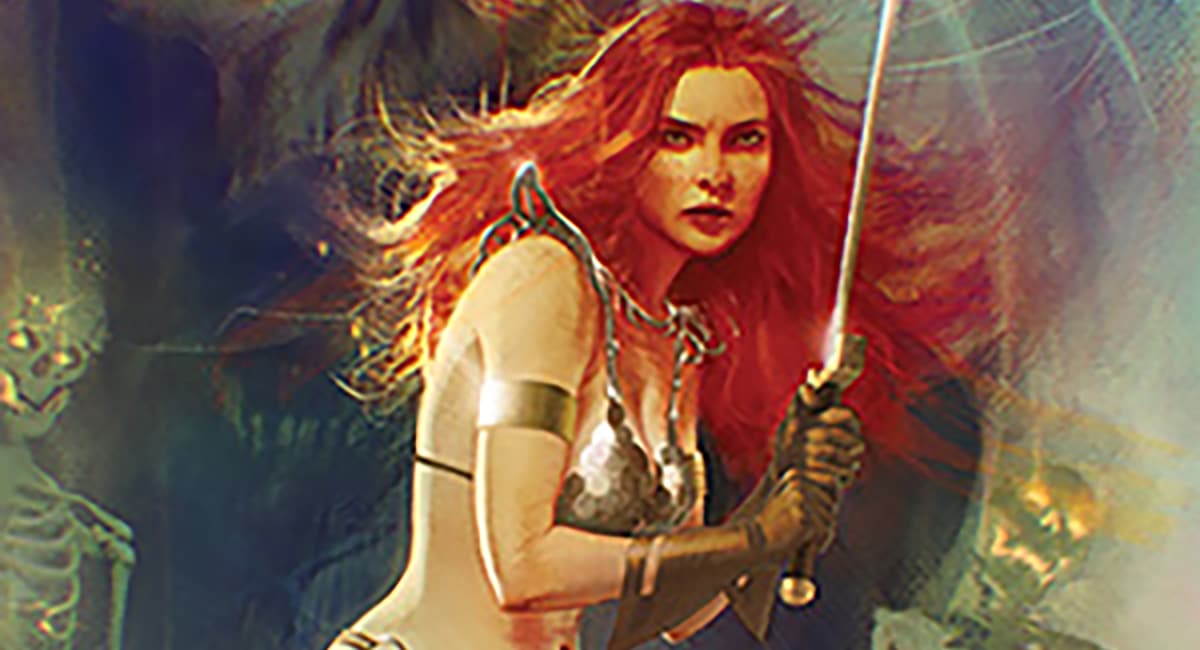



Pretty component to content. I just stumbled upon your blog and in accession capital to assert that I get
in fact loved account your blog posts. Any way I’ll be subscribing for your feeds or even I success you access constantly fast.
Comments are closed.